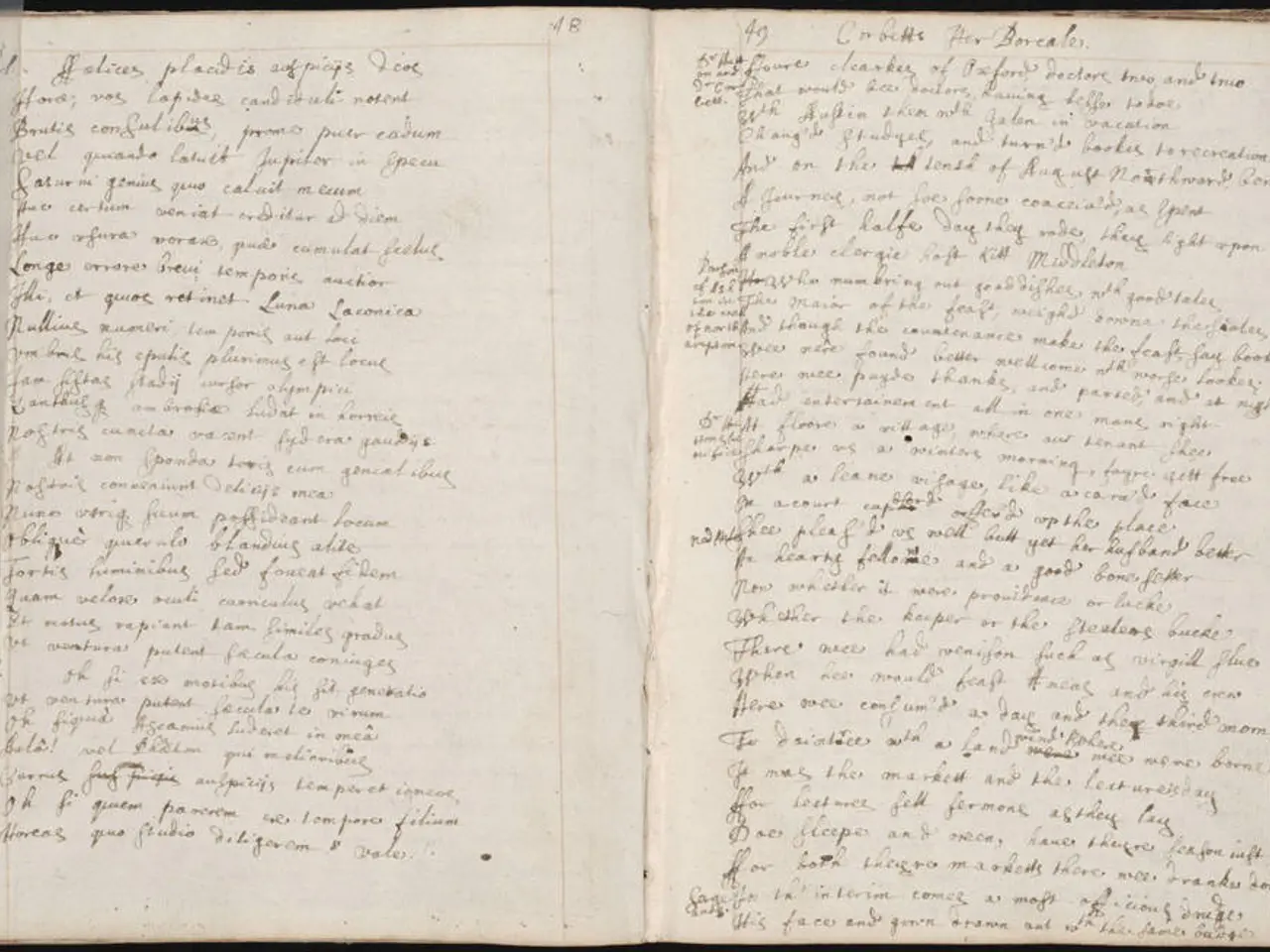Valuable Assets for Writers on the Autism Spectrum or Other Neurological Difference
Neurodivergent writers often face unique challenges when it comes to managing their executive functions, such as organizing tasks, time, focus, and self-control. However, there are a variety of tools and resources available to help them overcome these obstacles and thrive in their writing endeavours.
Digital and Physical Organizational Aids
One effective strategy is the brain dump and task breakdown. Writing down all thoughts and tasks in one place, whether it's a digital document, paper, or notes app, helps clear mental clutter and prioritize tasks. Breaking large projects into smaller, manageable steps with achievable goals promotes motivation and progress.
Using to-do lists and integrating deadlines with digital calendars, such as Google Calendar, provides external structure and reminders essential for managing tasks and deadlines.
AI Assistance
AI tools like ChatGPT, Google Gemini, Microsoft Copilot, and Google’s NotebookLM can assist in brainstorming ideas, organizing thoughts, outlining projects, and recognizing patterns. These resources support executive functioning by easing cognitive load without replacing human creativity.
Sensory Regulation Techniques
Strategies such as co-regulation through movement (walking, stretching), energizing breaks, sensory cues (peppermint scent, light shoulder taps), and calming sensory retreats (noise-canceling headphones, dim lighting) help regulate energy and focus levels.
Educational Support
Learning about how executive functions operate and vary by individual helps neurodivergent writers tailor coping strategies, set realistic goals, track progress, and improve decision-making.
Writing Resources Specific to Neurodivergence
Dedicated guides and resources acknowledge the unique executive function challenges faced by neurodivergent writers, providing empathy and practical strategies to sustain focus, manage details, and complete projects despite cognitive barriers.
Community and Support
Writers with ADHD can find community and support on platforms like Facebook and the Neurodivergent Writers & Artists Discord. Books such as Tamara Rosier's "Your Brain's Not Broken" and Matt Bell's "Refuse to Be Done" offer insights and encouragement for neurodivergent writers. Rebecca Makkai has a Writing With ADHD Substack, and creatively ADHD on Substack provides helpful posts.
Productivity Boosters
Techniques like body doubling (writing with a friend), setting tiny goals with fast wins, timed sprints with rewards, and externalizing everything, such as using visual cues like sticky notes or storyboards, can help neurodivergent writers stay on task and boost productivity.
FocusMate is a tool for co-working with total strangers, and FocusWriter is a free, customizable writing software with minimal distractions. For some people with neurodivergence, managing executive functions can be challenging, but changes like breaking down tasks, utilizing visual aids, creating a dedicated writing environment, regular exercise, finding highest focus times, prioritizing self-compassion, and accepting that one's brain is different can make a significant difference in productivity.
In conclusion, a combination of digital and physical organizational aids, AI assistance, task management strategies, sensory regulation techniques, and educational support provides a comprehensive support system to manage issues such as task initiation, sustaining focus, organization, time management, and self-regulation that commonly challenge neurodivergent writers.
- A writing coach or dedicated guides and resources specific to neurodivergence can offer practical tips to help neurodivergent writers sustain focus and manage details during their writing endeavors.
- Using digital tools like ChatGPT, Google Calendar, and writing software with minimal distractions, such as FocusWriter, can support executive functioning and productivity for neurodivergent writers.
- Sensory regulation techniques, such as co-regulation through movement, energizing breaks, and calming sensory retreats, can help neurodivergent writers regulate their energy and focus levels.
- Dedicated platforms like the Neurodivergent Writers & Artists Discord and Substack offer community, support, and insights for neurodivergent writers, helping them in personal-growth and productivity.
- Incorporating strategies like body doubling, setting tiny goals, timed sprints, and externalizing everything can help neurodivergent writers stay on task and boost productivity, making significant differences in their writing and education-and-self-development.




